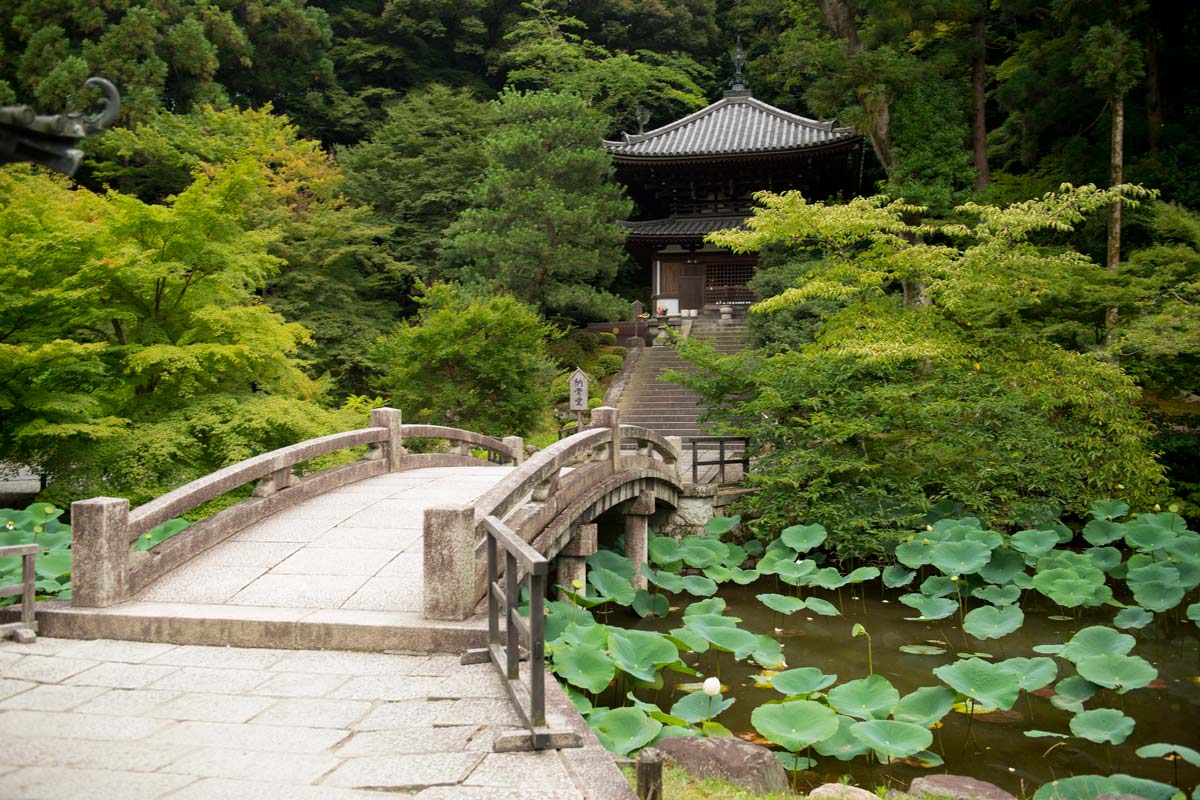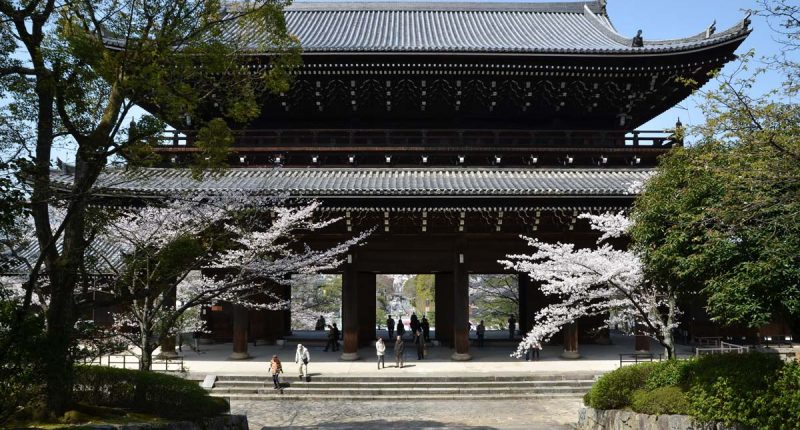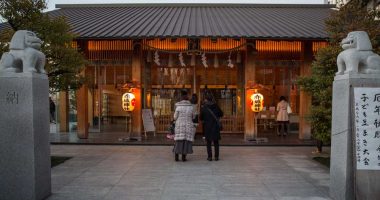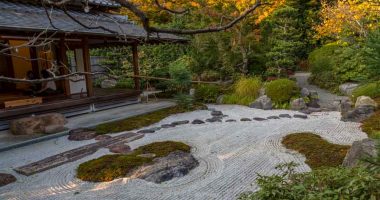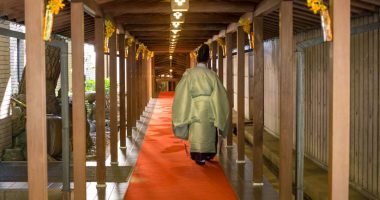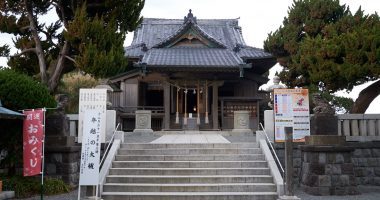Chionin (知恩院) is located in the Higashiyama district of Kyoto and is the head temple of the Jōdo Shū (Pure Land Sect) of Buddhism. It has one of the largest wooden gates in Japan—50 meters wide and 24 metres tall with over 70,000 roof tiles—and has stood since 1621. The temple itself dates back to the late 12th century as a dedication to Hōnen (1133–1212), the founder of the sect of Buddhism to which the temple belongs.
The spacious grounds of the temple contain several structures (some of which are unfortunately closed to the public) and two Japanese gardens. The most important of the buildings is the Mieidō, a large hall that houses the image of Hōnen and is the center of the Choinin. Other structures include the Amida-dō (Amitabha Hall), the Shūedō (Assembly Hall), and the Seishidō (Seishi Hall), which dates back to 1530 and is the oldest building in Choinin.
